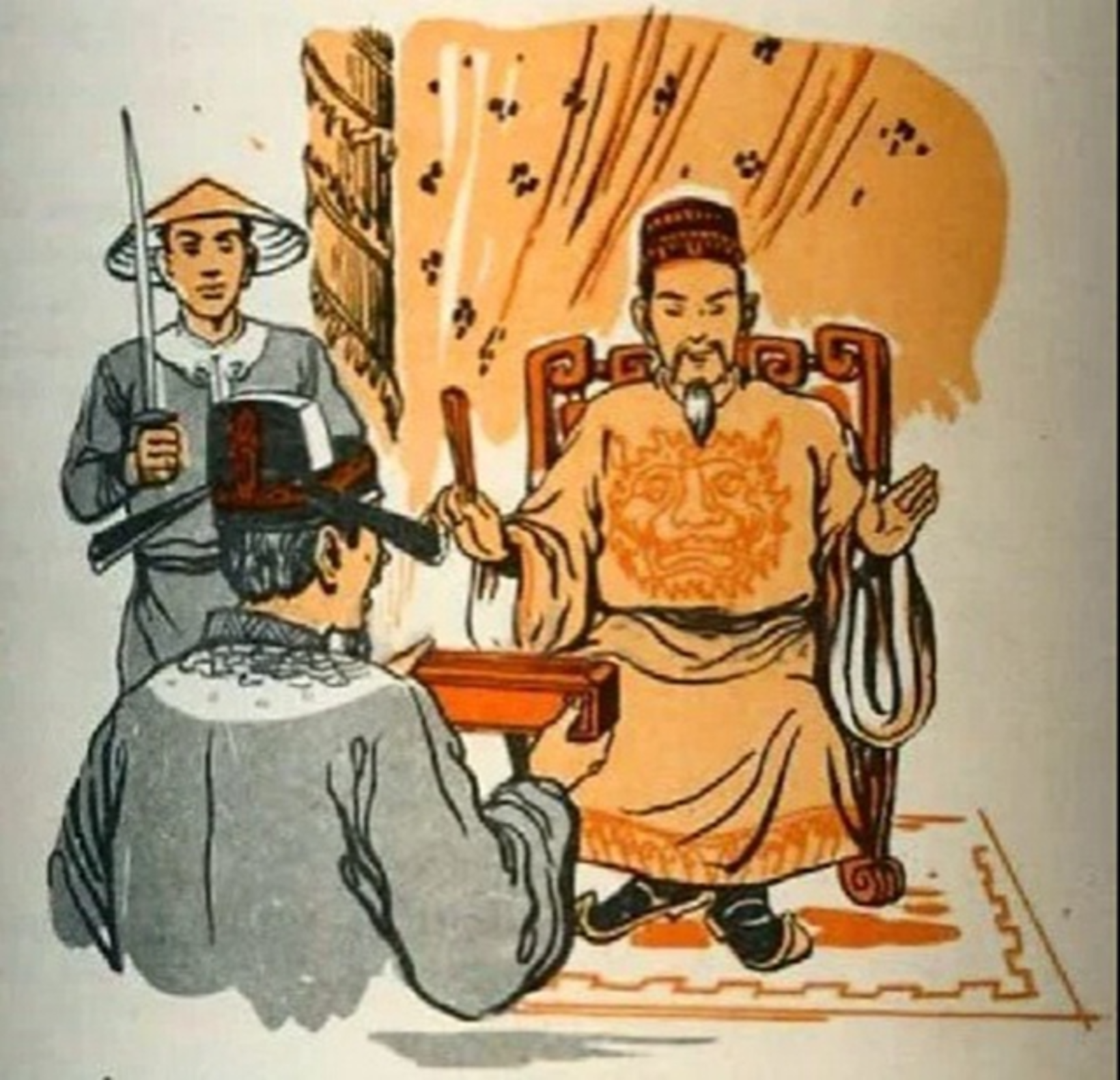In Vietnam, there was a mandarin who was likened to Bao Thanh Thien (China) because of his godlike judgment skills, having solved many difficult cases, bringing justice to the people.

The person mentioned is Nguyen Mai (1655 - 1720), from Ninh Xa village, Chi Linh district, Hai Duong. The book Dai Nam Nhat Thong Chi describes him as a person "with good health, resourcefulness, having to hold his breath when robbing, being clear-sighted in judging cases, and having a very high reputation".
In 1691, during the reign of King Le Hy Tong, Nguyen Mai passed the royal examination and became an official. With his noble and upright character, not afraid of power, Nguyen Mai criticized the lavish lifestyle of Lord Trinh. Lord Trinh, although somewhat displeased, still respected and valued him. The Lord assigned him the important responsibility of guarding the navy, later serving as the Governor of Cao Bang and then transferred to guard Son Tay.
Also in Son Tay town, today's posterity knows about Nguyen Mai's godlike talent in judging cases. Many stories about his trials are passed down among the people.
One day, Nguyen Mai passed by Dong Ngac village (present-day Hanoi) and heard a woman loudly cursing about the loss of a bunch of bananas. He thought that the village chief had never paid attention to investigating and prosecuting petty theft, so this evil was rampant. He approached the woman and discovered that the cut marks on the banana tree were still fresh.
Knowing that the thief was only around, he immediately called the village chief and ordered all the villagers to go clean the communal house pond. While everyone was working hard, he told the village chief to go buy betel and areca nuts and give them to everyone to eat. After that, he told everyone to wash their hands thoroughly and sit in the communal house yard to rest.
Among the hands reaching out to receive betel, Nguyen Mai noticed that one person’s hand still had mud stains on it even though it had been washed, so he immediately ordered that person to be arrested. Sure enough, that person was the banana thief because the banana sap stuck to his hand, and when soaked in mud, it became dirty and could not be washed off immediately. After just a few questions, this person had to bow his head and admit his guilt, return the banana bunch he had taken, and pay a fine to the villagers.
The book "Royal Vietnamese History Collection" still records a story. One time, Nguyen Mai passed by Bao Kham market in Gia Binh (Bac Ninh) and saw a woman who had lost a chicken cursing loudly. Perhaps because she felt sorry for the thief, she cursed the thief's entire family. Nguyen Mai heard this and scolded the woman for her evil mouth, then ordered all the villagers, both old and young, men and women, to slap her on the face.
Everyone reluctantly obeyed the order out of fear, but still pitied her and hit her lightly. However, one person tried to slap her hard. Nguyen Mai immediately arrested and interrogated her. Sure enough, that person was the culprit, who was angry and indignant because of being cursed.
Another time, Nguyen Mai met a nun at Son Vi pagoda (now in Phu Tho) who complained about lost belongings. To solve this case, he ordered a prayer altar to be set up, forcing the other nuns in the pagoda to hold a flag in one hand and a bundle of rice in the other, walking around, shouting "whoever commits a crime, the rice in their hands will sprout". While the nuns were marching, he saw a nun walking and occasionally opening her hand to look, so he immediately questioned her, and indeed she was the culprit.
In 1720, Nguyen Mai died and was posthumously awarded the title of Minister of Rites and the title of Duke. His third son brought his father's coffin back to his hometown for burial.
Until now, history books still record this mandarin's name with stories of his wise and intelligent judgments. People have forever praised him as "Bao Cong of Viet", "Bao Thanh Thien of Viet".
TH (synthesis)